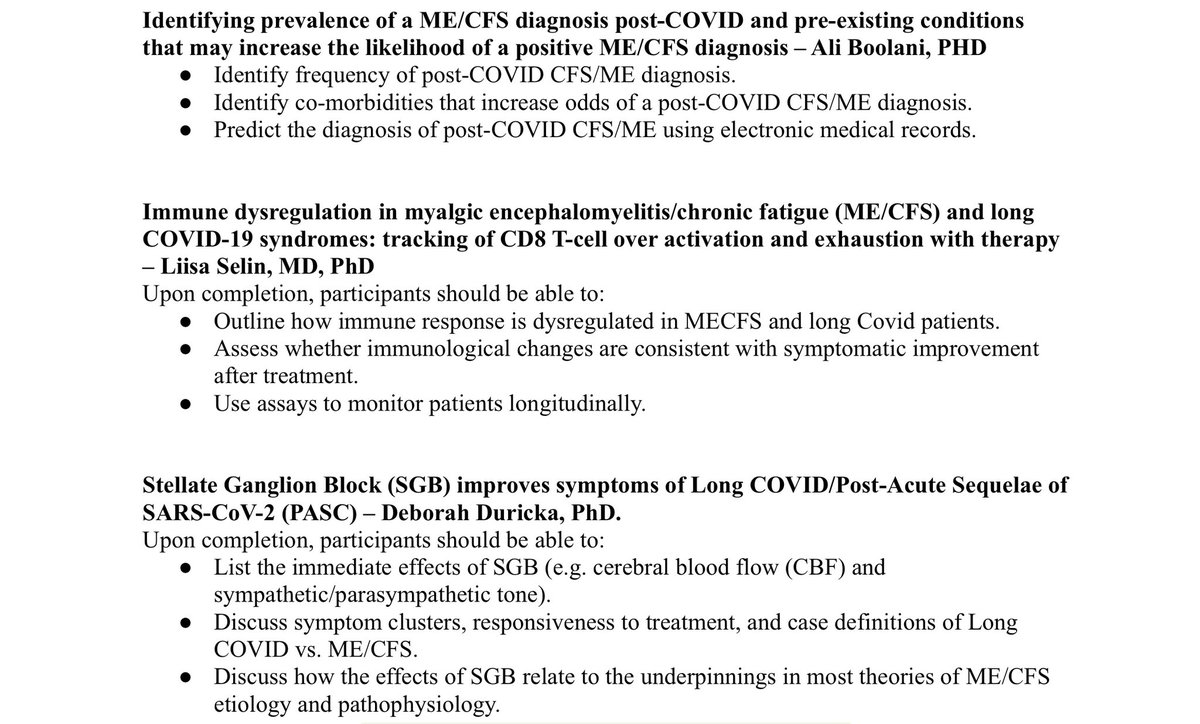IACFSME at 3:45 pm ET -- Panel on Metabolism and Co-Morbid Conditions.
#CovidIsNotOver #mecfs #LongCovid #iacfsme #COVID19 @itsbodypolitic
#CovidIsNotOver #mecfs #LongCovid #iacfsme #COVID19 @itsbodypolitic

Dr. Baraniuk is assessing the potential for biomarkers in Cerebral Spinal Fluid.
It involves pre- and post- exercise lumbar punctures. MECFS results indicate myelin and white matter dysfunction.
Findings indicates dysregulation of energy metabolism in MECFS.
Results from CSF analysis are showing that people with MECFS are metabolizing incorrectly.
Dr. Pederson is discussing suicidal behavior in chronic invisible illness.
Increased risk is related to illness, chronic pain, and sleep disturbance.
Of note: rates of depression are similar to general population.
In chronic illness, "burdensomeness" may be important risk factor.
Key terms: perceived burdensomeness and thwarted belongingness. Feeling like a burden to family/friends. And, feeling like an outsider in social groups.
Other risk factor is fearlessness of death.
Perceived burdensomeness is greatly impacted by gender -- male gender is a predictor. Others are increased total diagnoses.
Men with chronic illness cannot meet definition of "masculinity"
Key strategies : screening by practitioners, counseling, family structures to provide autonomy.
Third talk is Kate Mudie on joint hypermobility & MECFS
Joint hypermobility is associated with symptoms that parallel MECFS. Connective tissue looseness affects circulation.
Another potential link: craniocervical obstructions.
Recent paper (Vogel, 2022) did not establish a clear link between JH+ and MECFS.
Now, being studied via You+ME registry.
Results are still in early stages. Have not yet seen statistically significant subgroup based on JH+.
In Q&A, Dr. Pederson noted that interactions with health care system can exacerbate risk factors, esp when patients experience gaslighting.
• • •
Missing some Tweet in this thread? You can try to
force a refresh











